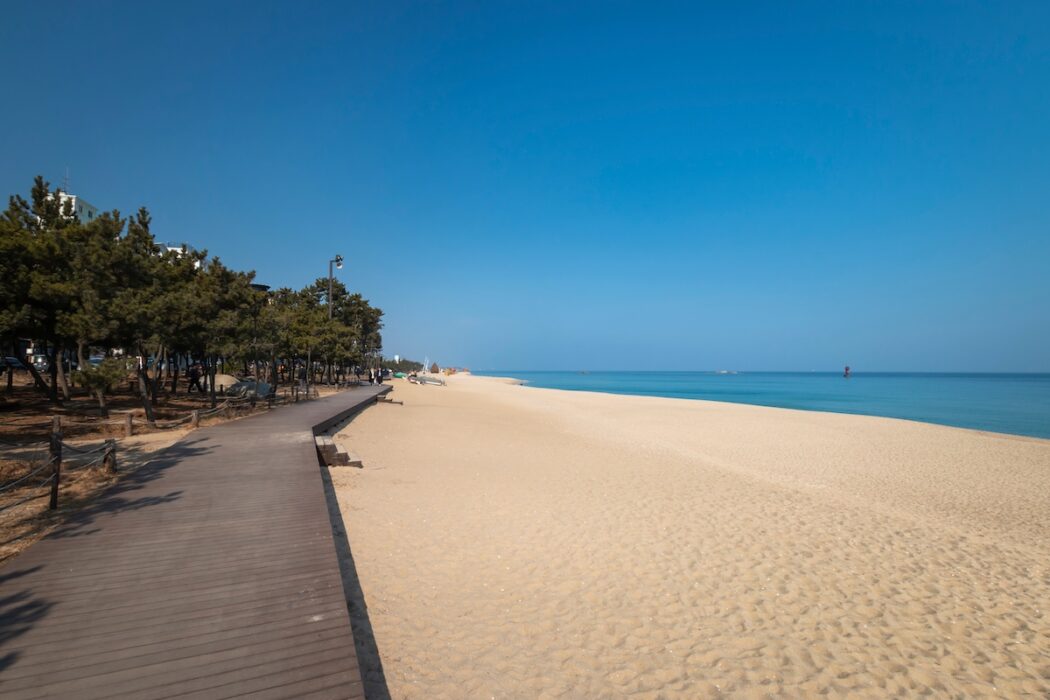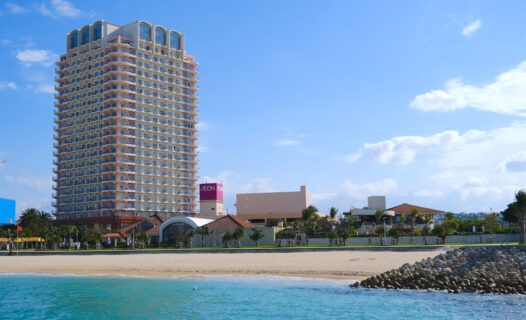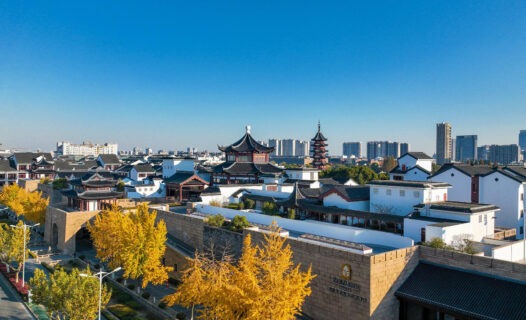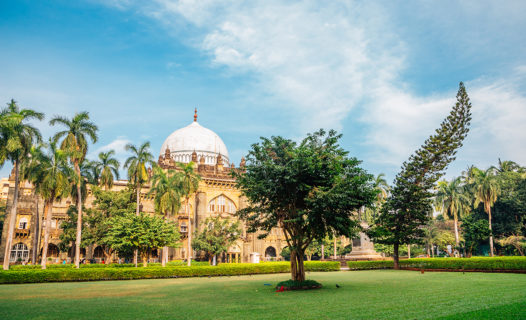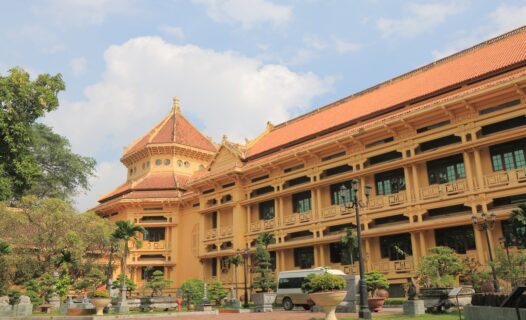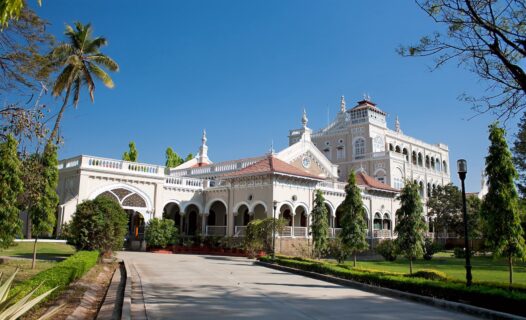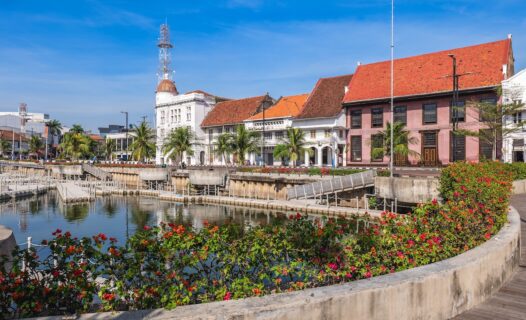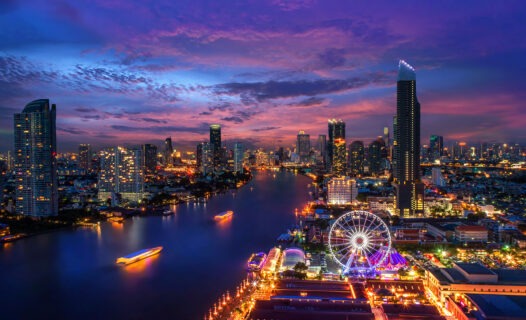Introduction to South Korea’s Culinary Festivals
Welcome to a culinary adventure that takes you through the heart of South Korea! With a food culture as rich as its history, South Korea is a paradise for food lovers. From spicy kimchi to savory bibimbap, the culinary delights are endless. But what makes this country even more special are its culinary festivals, where the flavors of the season come alive in vibrant celebrations. These festivals are not just about food; they are a joyful expression of Korean traditions, bringing communities together to celebrate the changing seasons with delicious dishes and lively events.
The importance of seasonal celebrations in Korean culture cannot be overstated. Each festival reflects the unique ingredients available at different times of the year, showcasing traditional dishes that have been passed down through generations. Whether you’re a seasoned traveler or a first-time visitor, exploring the food festivals in South Korea is a must-do experience that will tantalize your taste buds and immerse you in local culture.
Seasonal Celebrations: A Taste of Korea Throughout the Year
As the seasons change, so does the culinary landscape of South Korea. Each season brings its own festivals, flavors, and festive spirit. Let’s take a delicious tour through the year, exploring the unique seasonal celebrations in South Korea.
Spring Festivals: Blossoms and Bites
Spring is a time of renewal and celebration in South Korea, marked by the stunning cherry blossoms that blanket the landscape. One of the highlights of this season is the Boseong Green Tea Festival, where visitors can enjoy fresh green tea and learn about its production. The festival features various activities, including tea tasting and traditional performances, all set against the backdrop of lush tea fields.
Another must-visit is the Cherry Blossom Festival, where food stalls offer seasonal delicacies like tteok (rice cakes) and beondegi (silkworm larvae). The sweet scent of cherry blossoms fills the air, making it a perfect time to sample these traditional dishes while enjoying the breathtaking views.
Summer Festivals: Sizzling Flavors and Fun
As the temperature rises, so does the excitement! Summer in South Korea is all about fun in the sun, and what better way to celebrate than at the Boryeong Mud Festival? This unique event combines mud wrestling, mudslides, and of course, fantastic food. Street food vendors line the festival grounds, offering local delicacies like hotteok (sweet pancakes) and odeng (fish cake skewers) that are perfect for a day of play.
Another favorite is the Daegu Chimac Festival, dedicated to the perfect pairing of fried chicken and beer (chimac!). This festival is a foodie’s dream, with endless stalls serving up crispy chicken, spicy sauces, and refreshing drinks. The lively atmosphere is contagious, making it a fantastic spot to mingle with locals and fellow travelers alike.
Autumn Festivals: Harvest and Harmony
As the leaves turn golden and the air gets crisp, autumn brings a bounty of flavors. One of the most important celebrations during this season is Chuseok, often referred to as the Korean Thanksgiving. Families gather to honor their ancestors and share traditional meals, featuring dishes like songpyeon (rice cakes) and bulgogi (marinated beef).
The Jeonju Bibimbap Festival is another highlight, celebrating one of Korea’s most iconic dishes. Visitors can participate in cooking demonstrations, taste various bibimbap styles, and learn about the cultural significance of this colorful dish. It’s a feast for both the eyes and the palate!
Winter Festivals: Cozy Comforts and Celebrations
Winter in South Korea is a magical time, filled with cozy gatherings and festive cheer. The Hwacheon Sancheoneo Ice Festival is a unique winter wonderland where visitors can enjoy ice fishing, sledding, and delicious winter treats. One of the festival’s highlights is the chance to taste sanchoeon-eo (mountain trout) grilled fresh from the icy waters.
Another significant celebration is Seollal (Lunar New Year), where families come together to celebrate the new year with traditional foods like tteokguk (rice cake soup). This dish symbolizes the gaining of a year in age and is a must-try during the festive season. The warmth of family gatherings and the delicious food make winter festivals a heartwarming experience.
Iconic Culinary Festivals: A Feast for the Senses
South Korea is home to a vibrant tapestry of culinary festivals that highlight the country’s rich food culture. These events are not just about indulging in delicious dishes; they are celebrations of community, history, and tradition. Let’s explore some of the most iconic festivals where food takes center stage!
Gwangju Kimchi Festival
Kimchi is more than just a side dish in South Korea; it’s a cultural icon! The Gwangju Kimchi Festival is a must-visit for anyone looking to learn about this beloved staple. Held annually in Gwangju, this festival features workshops where you can try your hand at making kimchi, sampling various types from spicy to sweet. You’ll also find competitions showcasing the best kimchi makers, live performances, and plenty of opportunities to taste this fermented delight.
Don’t miss the chance to join in the mass kimjang, where participants gather to prepare kimchi in large quantities, a practice that symbolizes community spirit and sharing. Mark your calendars for this festival, usually held in late October, and get ready to savor the flavors of kimchi!
Jeonju Bibimbap Festival
Are you a fan of bibimbap? Then the Jeonju Bibimbap Festival is your culinary paradise! Jeonju is renowned for its bibimbap, a colorful dish that combines rice with a variety of vegetables, meat, and spicy gochujang (chili paste). This festival celebrates the dish with cooking demonstrations, tasting sessions, and cultural exhibitions that delve into the history and significance of this iconic meal.
Join the fun by participating in cooking classes or trying out different versions of bibimbap, from traditional to modern twists. The festival usually takes place in May, making it the perfect spring outing for food lovers!
Busan Seafood Festival
If seafood tickles your taste buds, then the Busan Seafood Festival should be on your itinerary. Held in the bustling port city of Busan, this festival showcases the freshest catches from the sea. From raw fish to grilled delicacies, you’ll find an array of dishes that highlight the region’s fishing traditions.
Food stalls and restaurants set up shop along the coast, offering everything from sashimi to spicy seafood stews. With various cooking demonstrations and tastings, you can learn about the unique flavors of Busan’s seafood cuisine. The festival typically occurs in October, making it a fantastic way to enjoy the coastal atmosphere while indulging in mouthwatering dishes.
Hwacheon Sancheoneo Ice Festival
Winter in South Korea brings a delightful twist with the Hwacheon Sancheoneo Ice Festival. This unique event is all about fun in the snow and ice, featuring activities like ice fishing, sledding, and snowman building. But the real treat lies in the culinary offerings!
Visitors can enjoy fresh sancheoneo (mountain trout) grilled right on the spot, along with other hearty winter dishes. Warm up with a cup of hot fish soup or try some traditional Korean winter snacks. This festival usually takes place in January, so bundle up and get ready for a frosty feast!
Lesser-Known Festivals: Hidden Gems of Korean Culture
While the major festivals are sure to delight, South Korea is also home to a variety of lesser-known culinary events that offer a more intimate experience of local culture. Let’s shine a light on these hidden gems!
Suwon Hwaseong Cultural Festival
The Suwon Hwaseong Cultural Festival is a celebration of history and heritage, taking place around the stunning Hwaseong Fortress. This festival features traditional Korean dishes that have been enjoyed for centuries. You can sample regional specialties and learn about the culinary practices of the past.
Don’t miss the chance to participate in hands-on activities like making jeon (Korean pancakes) or tteok (rice cakes). The festival typically occurs in the fall, making it a beautiful time to explore the fortress and indulge in delicious food.
Jeju Fire Festival
Head to Jeju Island for the Jeju Fire Festival, where fire and food come together in a spectacular celebration. This festival is rooted in the island’s agricultural traditions, where farmers burn old grass to prepare for the new growing season. The event features a variety of local dishes, showcasing Jeju’s unique ingredients, including fresh seafood and the famous Jeju black pork.
Join in the festivities with traditional performances, games, and, of course, plenty of food stalls serving up delicious bites. The festival usually takes place in early March, so don’t miss out on this fiery culinary adventure!
Incheon Pentaport Rock Festival
For those who love music and food, the Incheon Pentaport Rock Festival is a fantastic blend of both! While it’s primarily a music festival, you’ll find an array of food vendors offering a taste of local delicacies. From street food favorites to gourmet dishes, there’s something for everyone.
Take a break from the music and explore the culinary offerings, which often feature fusion dishes that reflect Korea’s evolving food scene. This festival typically occurs in August, making it a fun summer outing for music lovers and foodies alike!
Culinary Deep Dive: Traditional Dishes and Seasonal Ingredients
Now that you know about the festivals, let’s take a closer look at some traditional Korean dishes that steal the show at these events. Each dish tells a story, reflecting the rich history and culture of Korea.
Kimchi: The Heart of Korean Cuisine
No discussion of Korean food is complete without mentioning kimchi. This fermented vegetable dish, usually made with napa cabbage and radishes, is a staple at every Korean meal. Not only is it delicious, but it’s also packed with health benefits, including probiotics that promote gut health.
At festivals, you’ll find a variety of kimchi styles, from the classic spicy version to unique regional interpretations. Sampling different types of kimchi will give you a true taste of Korea’s culinary diversity!
Bibimbap: A Colorful Culinary Canvas
As mentioned earlier, bibimbap is a highlight of many festivals. This dish is a beautiful mix of rice, vegetables, meat, and a fried egg, all topped with spicy gochujang. The colors and textures make it a feast for the eyes as well as the palate.
Each region in Korea has its own take on bibimbap, so be sure to try different variations at the festivals. You might find unique ingredients that reflect the local culture and seasonal produce!
Songpyeon: The Taste of Harvest
During Chuseok, you’ll find songpyeon everywhere. These crescent-shaped rice cakes are filled with sweetened sesame seeds or mung beans and are traditionally made during the harvest festival. Making songpyeon is a cherished family activity, symbolizing gratitude for the harvest and hopes for a good year ahead.
Sampling songpyeon at festivals is a delightful way to experience Korean culture and tradition. The chewy texture and sweet filling are sure to leave you craving more!
Festival Food Experiences: Engaging with Local Vendors
One of the best parts of attending food festivals in South Korea is the chance to engage with local vendors. They are the heart and soul of these events, often sharing stories about their dishes and the traditions behind them. Here are some tips for making the most of your culinary experience:
- Ask Questions: Don’t be shy! Vendors love sharing their knowledge about the food they serve. Ask about ingredients, cooking methods, and the history of the dishes.
- Taste Before You Buy: Many vendors offer samples, so take advantage of this opportunity to try before you buy. It’s a great way to discover new flavors!
- Try Something New: Festivals are the perfect time to step outside your comfort zone. Be adventurous and try dishes you’ve never had before!
Travel Tips for Festival-Goers: Making the Most of Your Visit
Ready to hit the festivals? Here are some practical tips to ensure your experience is as enjoyable as possible:
Transportation Options
Getting around South Korea is a breeze, thanks to its efficient public transport system. Most festivals are easily accessible via subway or bus. Consider getting a T-money card for convenient travel on public transportation. If you’re traveling to more remote areas, check local bus schedules in advance.
Accommodation Recommendations
During festival seasons, it’s wise to book your accommodations early. Look for hotels or guesthouses close to the festival locations to save time on travel. Websites like Agoda offer great deals on a variety of lodgings, ensuring you find the perfect spot to rest after a day of feasting!
Cultural Etiquette
When attending festivals, it’s important to respect local customs. Greet vendors politely, and if you’re sampling food, remember to say “thank you” in Korean: “gamsahamnida.” Participating in traditional activities with respect and enthusiasm will enhance your experience and help you connect with the local culture.
Sustainability and Conservation Focus: Eco-Friendly Festivals
As you indulge in South Korea’s culinary delights, it’s essential to consider the impact of food festivals on the environment. Many festivals are taking steps toward sustainability by promoting eco-friendly practices. Look for initiatives such as:
- Waste Reduction: Many festivals encourage the use of reusable containers and utensils to minimize waste.
- Local Sourcing: Vendors often use locally sourced ingredients, supporting local farmers and reducing carbon footprints.
- Educational Programs: Some festivals offer workshops on sustainable cooking and food preservation techniques.
By supporting these eco-friendly practices, you can enjoy the festivities while contributing to the preservation of South Korea’s rich food culture.
Outdoor Sports and Activities: Fun Beyond Food
While food is the star at these festivals, many also offer exciting outdoor activities. From hiking in the beautiful countryside to participating in traditional games, there’s plenty to keep you entertained. Some festivals even feature live music, dance performances, and art exhibitions, making for a well-rounded experience!
So, whether you’re enjoying a scenic view while sipping on local tea or trying your hand at traditional crafts, be sure to explore beyond the food stalls.
Shopping Guide: Souvenirs and Local Products
Don’t leave the festivals without picking up some unique souvenirs! Many festivals have markets where you can find local products, crafts, and, of course, food items to take home. Look for:
- Kimchi: Bring home a jar of your favorite kimchi to enjoy later.
- Traditional Crafts: From pottery to textiles, you’ll find beautiful handmade items that reflect Korean culture.
- Local Snacks: Stock up on snacks like pepero (chocolate-covered sticks) or rice cakes to share with friends and family.
Commonly Asked Questions (FAQs) About Korean Festivals
Curious about attending festivals in South Korea? Here are some common questions answered:
- When is the best time to attend food festivals? Festivals occur year-round, but spring and autumn are particularly popular for their vibrant celebrations and seasonal ingredients.
- Are festivals family-friendly? Absolutely! Many festivals offer activities for all ages, making them a great outing for families.
- Do I need to speak Korean? While knowing some basic phrases can be helpful, many vendors are friendly and accommodating to tourists.
Fun Facts About Festivals and Food in South Korea
Ready for some fun tidbits? Here are a few interesting facts about Korean festivals:
- Kimchi is so beloved that there’s even a National Kimchi Day celebrated on November 22nd!
- The Jeonju Bibimbap Festival has been recognized by UNESCO for its cultural significance.
- Many festivals feature traditional games, such as tug-of-war and archery, allowing visitors to experience Korean culture firsthand.
Detailed Day-by-Day Itinerary for Festival Lovers
If you’re planning to experience multiple festivals, consider this sample itinerary:
- Day 1: Arrive in Seoul and explore local street food markets.
- Day 2: Head to the Gwangju Kimchi Festival and participate in kimchi-making workshops.
- Day 3: Visit the Jeonju Bibimbap Festival and try various bibimbap styles.
- Day 4: Travel to Busan for the Seafood Festival and enjoy fresh catches by the beach.
- Day 5: Experience the Hwacheon Sancheoneo Ice Festival and indulge in winter treats.
Feel free to mix and match festivals based on your travel dates for a delicious adventure!
Historical Context and Folklore: The Stories Behind the Festivals
Every festival in South Korea is steeped in history and folklore, often celebrating ancient customs and traditions. For example, Chuseok, or Korean Thanksgiving, has roots in agrarian society, where families would gather to give thanks for the harvest. The stories behind these festivals add depth to the culinary experiences, making each bite a taste of history.
At festivals, you can often hear tales from local elders who share the significance of each dish and tradition, enriching your understanding of Korean culture.
So, whether you’re savoring a plate of bibimbap or enjoying a lively performance at a festival, immerse yourself in the stories and traditions that make South Korea’s culinary festivals truly special.

